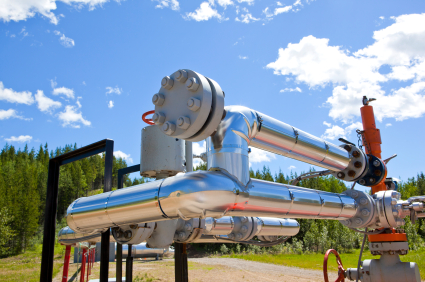
New guidance aims to clarify federal policy on fracking using diesel fluids.
Earlier this month, the EPA released a draft version of a guidance document that agency officials hope to use to make decisions about issuing permits for fracking operations that use diesel fluid.
According to the draft guidance, EPA would recommend that its permit writers expand their search for potential groundwater contamination. The draft guidance also would direct officials to consider other fracking that is already occurring in the area and any resulting environmental justice concerns.
The draft guidance would encourage regulators to require that applicants produce a plan for conducting real-time monitoring of a well during extraction and for closing the well after extraction is complete.
Notably, the draft guidance would have officials request the disclosure of the fracking fluid’s components and their proportions. Presently, this information is sometimes protected as proprietary.
Environmental groups have praised EPA for developing the draft guidance but some have insisted that the use of diesel fuels should be prohibited. “The EPA can and must ban this reckless practice” said Jessica Ennis, a legislative representative for the environmental group, EarthJustice.
The EPA’s release of its draft guidance is the latest is a series of federal actions targeted at fracking. In early May, the Department of the Interior proposed rules for fracking on federally-owned land. In mid-April, the EPA proposed a regulation targeting air pollutants released by fracking operations.
Under the EPA’s draft guidance on fracking with diesel fluids, where state regulators rather than the EPA are responsible for issuing permits, the EPA will still encourage state officials to consider the guidance when making their permitting decisions.
Fracking, also known as hydraulic fracturing, is a technique in which drilling operators pump high-pressure liquids into an underground well to fracture rocks and release natural gas. Critics have expressed concern that this process might lead to well-water contamination. Fracking liquids can include diesel fuels, which often contain carcinogens and other toxins.
The EPA has the authority under the Safe Drinking Water Act of 1974 to protect groundwater from pollution from drilling wells. Although the Energy Policy Act of 2005 excluded most fracking operations from EPA regulation, those operations that use diesel fuel still fall under the EPA’s authority.
In 2003, the EPA signed a voluntary agreement with three large fracking companies to ensure that they would stop injecting diesel. But last year members of a House Committee reported that over 32 million gallons of diesel fuel were injected into fracking wells between 2005 and 2009, without the EPA issuing a single permit.
Members of Congress have subsequently called on the EPA to investigate potential risks from fracking with diesel fluids and to develop guidance for regulatory officials.



